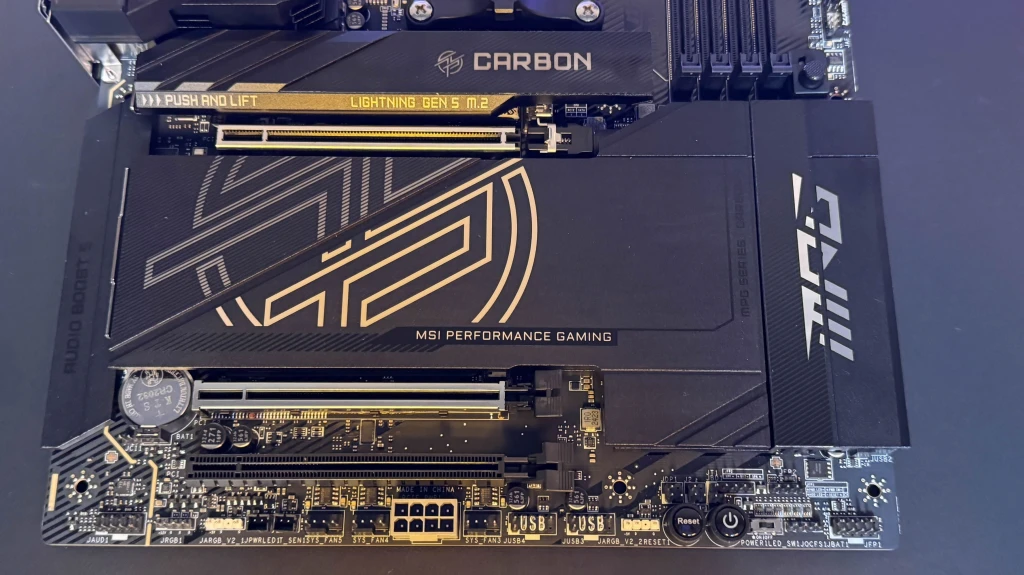The 8-pin PCI-E connector will fulfill the requirements of next-gen GPUs, possibly the RTX 5000 series cards from NVIDIA. As higher-end GPUs are becoming more power-hungrier, it can solve the power-requirement issues, particularly for the budget graphics cards that can be powered just from the motherboard.
The 8-pin PCI-E power connector can suffice for power requirements of budget and mid-range GPUs
At Gamescom, MSI along with other motherboard makers showcased its X870 and X870E motherboards for the Ryzen 9000 series processors. The motherboard not only has various improvements over the X670/X670E chipset boards but also brings an additional 8-pin PCI-E power connector. As reported by Cowcotland, the 8-pin PCI-E connector will be situated at the bottom of the PCB.

A regular 8-pin PCI-E power connector can deliver up to 150W for the GPUs. This is twice the power output of the PCI-E x16 slots that deliver up to 75W. Combined with the 8-pin PCI-E connector, the motherboard will be able to deliver up to 225W of total power from the PCI-E x16 slots to power the graphics cards. This means the graphics card can easily draw enough power from the PCI-E slot to run properly assuming its TDP doesn’t exceed this limit.
The external 8-pin power connector cable will be still needed from the power supply to connect to the motherboard 8-pin PCI-E connector. However, this will ensure a cleaner cable connection since users won’t have to bring the cable all the way to the GPU connector. Currently, many budget and mid-range GPUs can operate with under 225W of power. GPUs such as RX 7600X, RTX 4060, and RTX 4070 can run with 225W of power delivery easily but higher-end GPUs will still need an external power connection for sufficient power.
As per the information by Cowcotland, the new power connector is aimed at the next-gen graphics cards such as RTX 50 series NVIDIA GPUs. This will also help with multi-GPU setups for AI systems. Nonetheless, the RTX 50 graphics cards will most likely utilize the newer 12v2x6 power connector like higher-end RTX 40 series cards as the newer 12-pin connector offers much higher power delivery.
